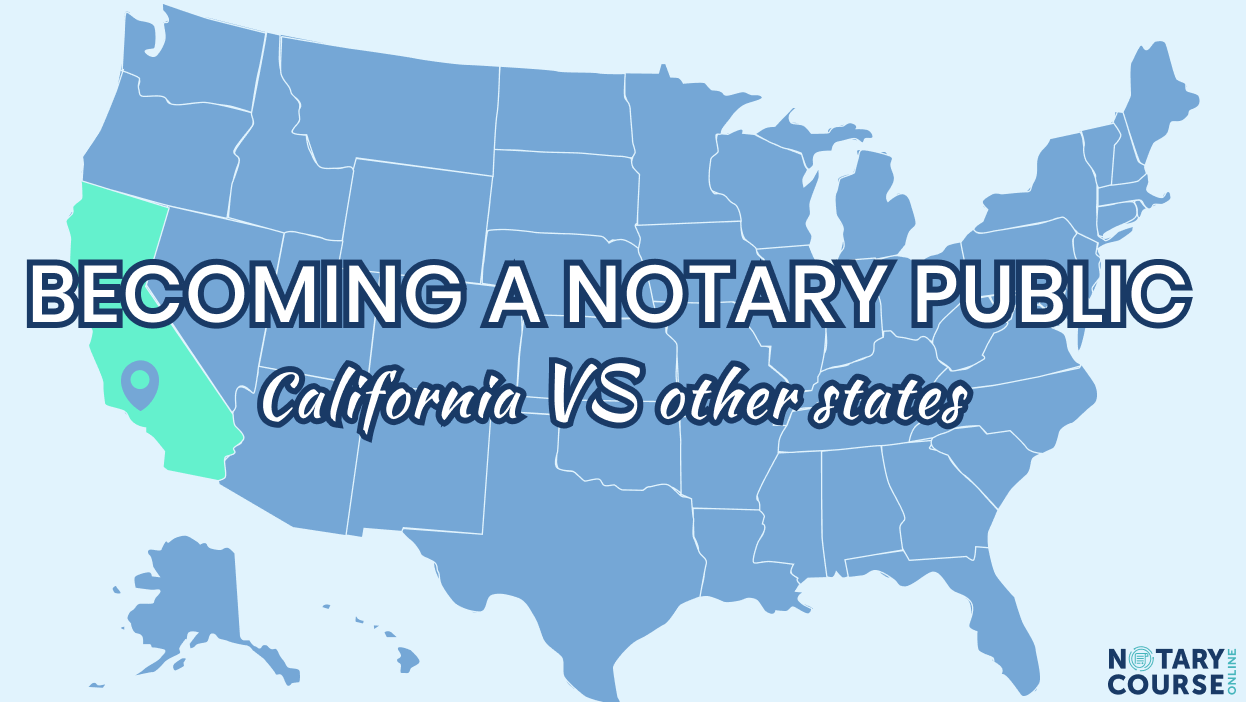California
Blog
Can You Notarize for a Family Member in California?

-
by Notary Course Online
- November 9, 2023
Notaries public in California play a crucial role in ensuring the validity and authenticity of legal documents. However, they must be aware of the limitations of their duties and responsibilities. There are certain rules about what notaries can do, especially when it comes to notarizing documents for family members. By understanding these limitations, notaries can maintain their integrity and credibility while providing valuable services to their clients.
In this article, Notary Course Online answers one of the most common questions from California notaries public: “Can I notarize for a family member?”
Can a California Notary Public notarize for a family member?
In California, notaries are NOT prohibited from notarizing documents for their family members, including spouses, parents, siblings, children, or other close relatives. However, the government warns notaries against doing so, even if the law does not prohibit it. California notaries public should pay attention to the California Government Code section 8224, which has the following regulations:
A notary public who has a direct financial or beneficial interest in a transaction shall not perform any notarial act in connection with such transaction.
California Government Code
Potential risks and exceptions for family member notarization
The warning from the state is made to prevent any potential conflict of interest that may arise when notarizing documents for family members. If a notary certifies a document for a family member, it can be seen as the notary having a personal interest in the transaction. This can potentially undermine the notary’s credibility and integrity and even lead to legal consequences.
There are some exceptions to this rule. Notaries may notarize documents for family members if they are not parties to the transaction and have no financial interest in the document being notarized. For example, a notary may notarize a document for a friend of his brother if the notary receives no compensation or benefit from the transaction.
In addition to the restrictions on notarizing documents for family members, there are other limitations to what notaries can do. They may not make any changes or alterations to a document once it has been signed and notarized, and they may not provide legal advice or perform any acts that could be considered practicing law.

Conclusion
California notaries public may notarize documents for their family members since it’s not directly prohibited by law. However, they are encouraged not to due to the potential for a conflict of interest to arise. Notaries public must be aware of the disciplinary guidelines, as failure to comply with them may result in negative consequences. Notaries who violate these rules may be subject to disciplinary action by the California Secretary of State and may include revocation of the notary’s commission.
For more information, check out our Notary Public Tips and Notary Public Resources.
How to get appointed as a notary public or renew your notary commission?
Our online notary public courses are suitable for both new and renewing notaries.
Sign up







 Congratulations!
Congratulations!